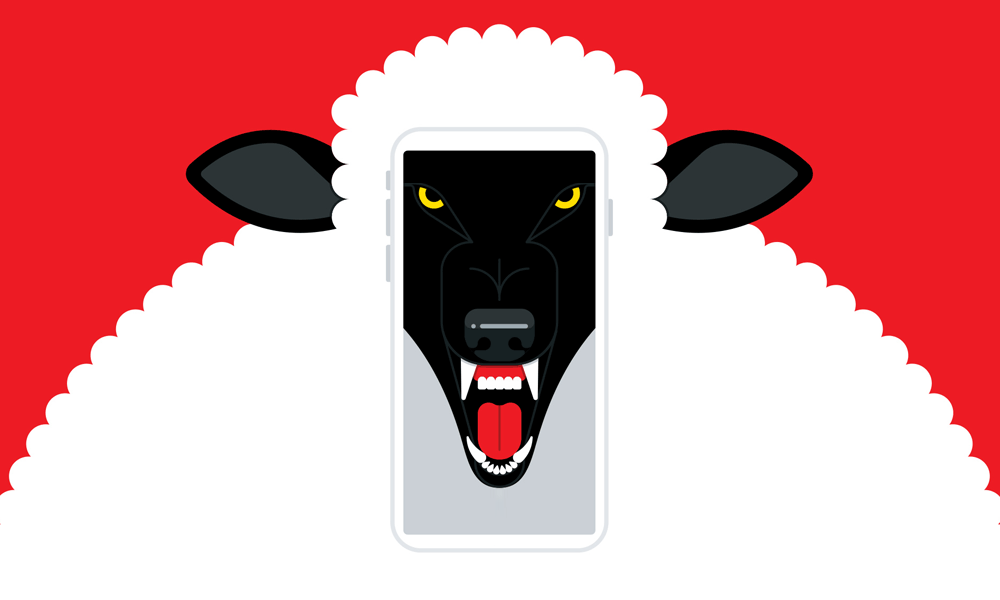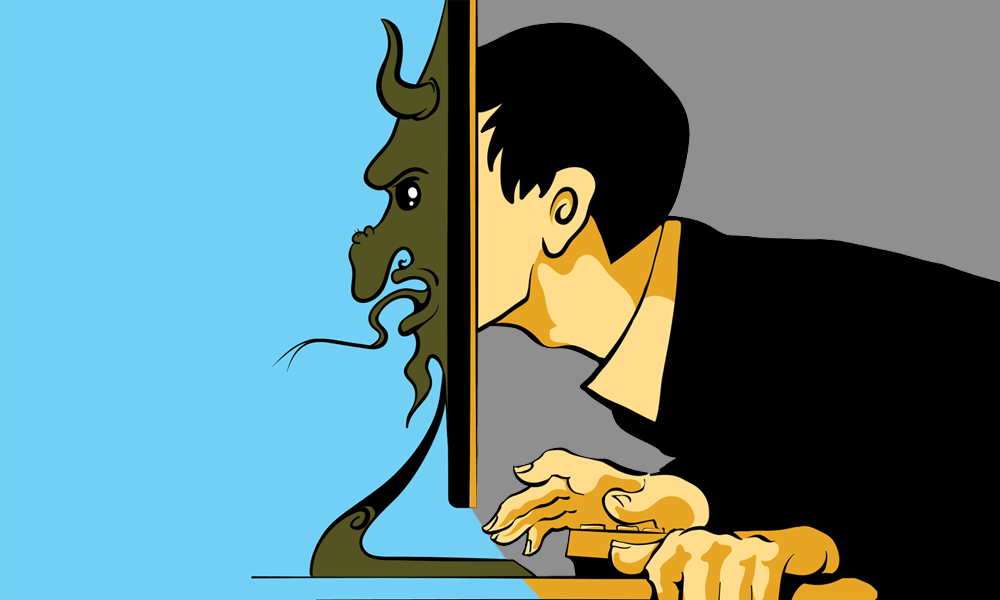What can't see you, can't hurt you. That is true for those cyberbullies out there.
In the age of online surveillance and self-censorship, anonymity has become the essential component of privacy and free-speech. As the consequences of such luxury, people are 'more than happy' to harass others, bully, and spread hatred.
What appears as the weakness of social media networks and messaging apps, the fact is that, it all goes down to the basic of humans.
We aren't afraid of anything or anyone that can't reach or hurt us.
On the internet where people can be anonymous and located half way across the globe, harassing others can be as simple as writing a comment, laugh it out, and scroll down to the next content.
As described by psychologist John Suler, who specializes in online behavior. He described this phenomenon as the “online disinhibition effect”, which means that people are feeling less accountable for their actions when they feel removed from their real identities.
In other words, people on the internet can be wolves in sheep's clothing.

This results in endless rude, critical, angry, hateful, and threatening towards one another, without fear of repercussion.
While social media and messaging apps aren't the sole to blame, they do have significant role in 'allowing' such actions.
First of all, users of the platforms are increasingly dissatisfied with the fact that social networks and messaging apps are dominated with Facebook, Instagram and a slew others. While Facebook, for example, encourages users to use their real name, but the design (and the aim) of the platforms also encourage people to present idealized versions of themselves.
On Instagram, for example, influencers are doing all they can to create the perfect shot. Using highend cameras, filters and image manipulation tools, users of social media networks tend to be obsessed with creating the best representations of themselves.
This is emotionally taxing.
Their audience who are the targets of those 'perfect' contents, can also experience the damage.
After being continuously bombarded with such contents, they may experience anxiety and the feelings of inadequacy - they are constantly comparing themselves to unrealistic images of other people.
To kill the pain, both sides turn to various forms of anonymous interaction that free them from the need to present a perfect avatar, and to also harass people they envy. And because anonymity needs to be preserved by those people, this is the reason why doxxing has become part of the harassment process.

The internet has long provided means of anonymity.
For example, bulletin board services in the old days of the 1980s, or IRC and others, they have provided users with the ways to create online identities. This in turn allows people to be more open to others, in ways that are otherwise difficult to achieve.
For good reasons, this opened up a space where people can be honest about the problems they suffer, or help others, or to participate in the development of things that are also otherwise impossible.
The anonymity helped create more intellectual discussion, as it allowed participants to represent their true opinions without fear of being ostracized or harassed for saying the wrong thing.
But for others, the luxury of anonymity gives them a way to pronounce their harsh “truths” without fear of retribution for going against popular opinions of their peers. One aspect of the idealized self-presentation of social media is supporting certain views because they are seen to be fashionable among a certain group of people, rather than because they are truly held beliefs.
In other words, anonymity has a side-product.
Anonymity is good for many reasons, but it's also equally as bad.
Cyberbullying is an undoubtedly a serious problem that needs to be solved. With human moderation, AI algorithms and everchanging policy, online companies are doing what they can to curb actions that hurt the feeling of others. But the answer goes down to how people should behave.
Netizens need educations. They need to understand the perils of social media consumption.
They need to understand that whenever they are connected to the internet, and using social media or messaging platforms, they are all part of a community. And the very best of communities are those that have people who respect others.